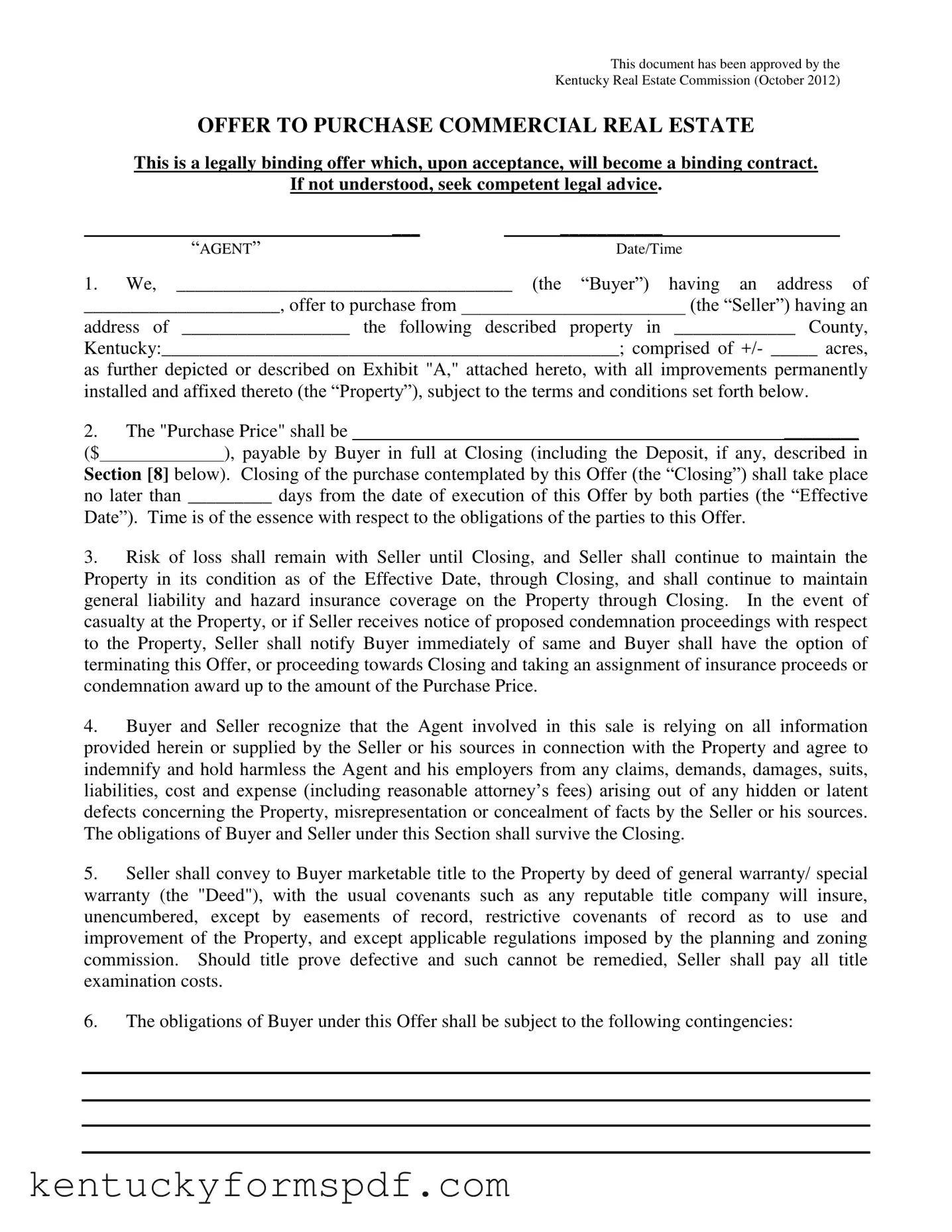What is the Home Sale Contract Kentucky form?
The Home Sale Contract Kentucky form is a legally binding document that outlines the terms of a real estate transaction between a buyer and a seller in Kentucky. It includes details such as the purchase price, property description, and obligations of both parties. Once accepted, this offer becomes a binding contract.
What are the key components of the contract?
Key components of the contract include the buyer's and seller's information, property description, purchase price, closing date, risk of loss provisions, title transfer details, and contingencies. The contract also addresses responsibilities for costs related to the transaction, including attorney fees and deposits.
What happens if there is a casualty or condemnation of the property?
If there is a casualty at the property or if the seller receives notice of proposed condemnation proceedings, the seller must notify the buyer immediately. The buyer then has the option to terminate the offer or proceed with closing while taking an assignment of any insurance proceeds or condemnation awards up to the purchase price.
What is the purpose of the deposit mentioned in the contract?
The deposit serves as a good faith payment made by the buyer upon the seller's acceptance of the offer. It is held in escrow by the agent and applied to the purchase price at closing. If the buyer terminates the offer due to unmet contingencies, the deposit will be refunded. If the buyer fails to fulfill their obligations, the seller may accept the deposit as liquidated damages.
How is title transferred in this contract?
The seller agrees to convey marketable title to the property through a deed of general warranty or special warranty. This title should be free of encumbrances, except for easements and recorded restrictive covenants. If the title is found to be defective and cannot be remedied, the seller is responsible for covering all title examination costs.
What happens at closing?
At closing, possession of the property is delivered to the buyer. All leases affecting the property are assigned to the buyer, and any advance rental collections or taxes due will be prorated. The seller is responsible for executing the deed and covering their attorney fees, while the buyer is responsible for their own attorney fees and financing costs.
What are the confidentiality provisions in the contract?
Both the buyer and seller must keep the terms of the contract confidential. They cannot disclose these terms to any third party, except for their respective officers, agents, and employees. This confidentiality requirement helps protect the interests of both parties during the transaction.
How are disputes resolved according to the contract?
Disputes arising under the agreement are first to be resolved through mediation. If mediation is unsuccessful, the parties may proceed to arbitration in Kentucky. For disputes within the jurisdiction of the Small Claims Court, those cases will be handled by that court. This process aims to provide a structured approach to resolving conflicts efficiently.

